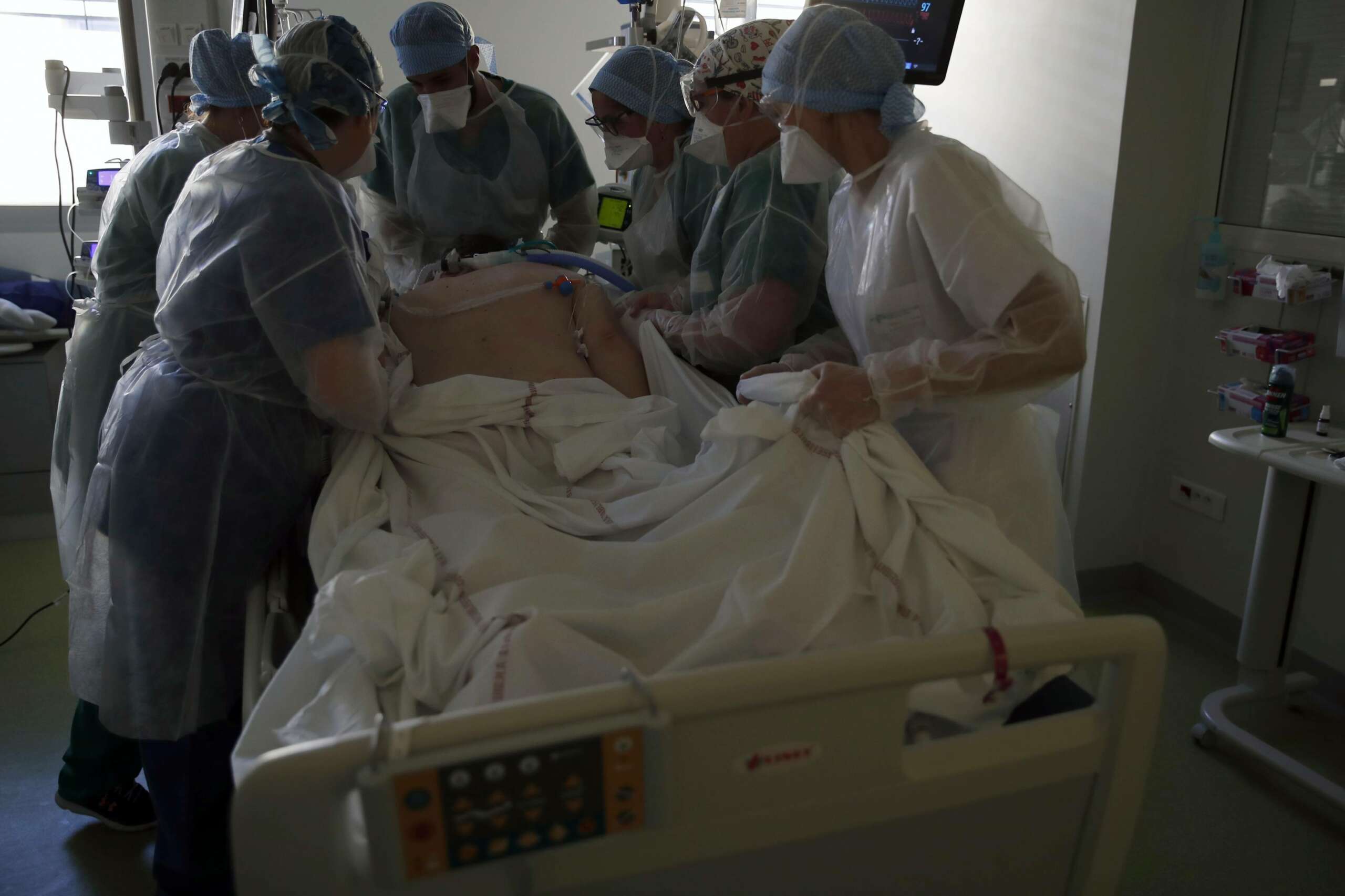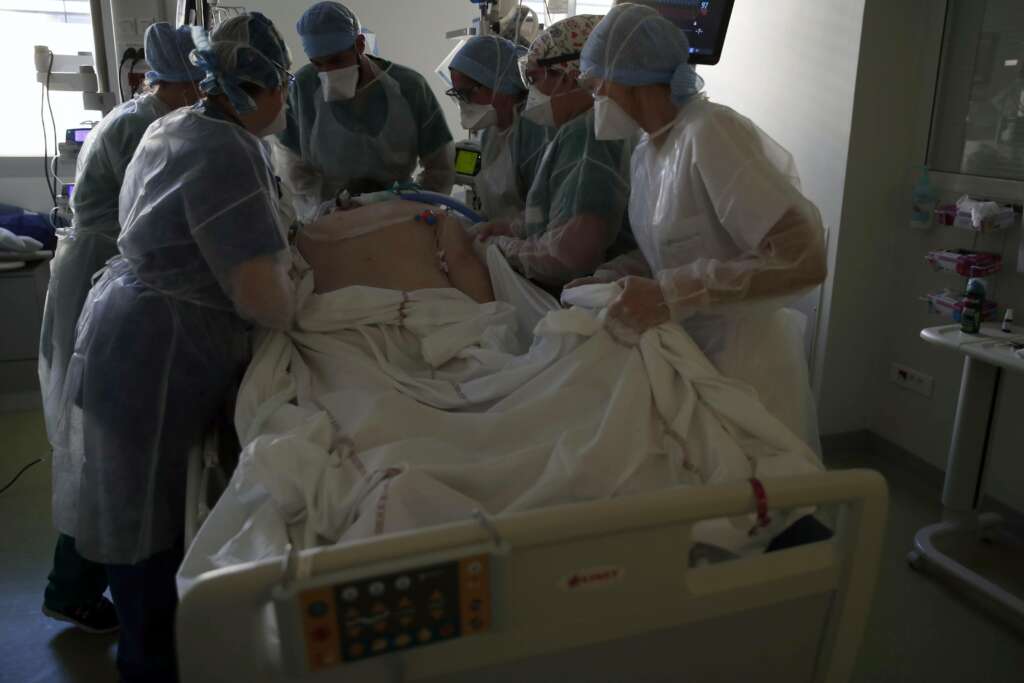JERUSALEM (AP) — Christians in the Holy Land marked Good Friday without the mass pilgrimages usually seen in the days leading up to Easter because of the coronavirus, and worshippers in many other predominantly Christian countries where the virus is still raging observed their second annual Holy Week with tight restrictions on gatherings.
In Jerusalem, many holy sites were open, thanks to an ambitious Israeli vaccination campaign. It was a stark contrast to last year, when the city was under lockdown. In neighboring Lebanon, Christians observed Good Friday under a lockdown and suffering a severe economic crisis.
In Latin America, penitents from Guatemala to Paraguay carried tree branches covered with thorns and large crosses in Passion Plays reenacting the crucifixion of Jesus Christ. At the Vatican, Pope Francis visited a center where volunteers administered vaccinations to poor and disadvantaged people in Rome.
Worshippers in the Philippines and France marked a second annual Holy Week under movement restrictions amid outbreaks fanned by more contagious strains. In the U.S., officials urged Christians to celebrate outdoors, while social distancing, or in virtual ceremonies.
Franciscan friars in brown robes led hundreds of worshippers down the Via Dolorosa in Jerusalem’s Old City, retracing what tradition holds were Jesus’ final steps, while reciting prayers through loudspeakers at the Stations of the Cross. Another group carried a large wooden cross, singing hymns and pausing to offer prayers.
Religious sites were open to limited numbers of faithful. The Church of the Holy Sepulchre, built on the site where Christians believe Jesus was crucified, died and rose from the dead, was open to visitors with masks and social distancing.
Despite one of the world’s most successful vaccination campaigns, air travel is still limited by quarantine and other restrictions, keeping away the foreign pilgrims who usually throng Jerusalem during Holy Week. In past years, tens of thousands of pilgrims would descend on the city’s holy sites.
“In regular years we urge people to come out. Last year we told people to stay at home,” said Wadie Abunassar, an adviser to church leaders in the Holy Land. “This year we are somehow silent.”
“We have to pray for those who can’t be here,” said Alejandro Gonzalez, a Mexican living in Israel. “Those of us who can be here have a responsibility to keep them in mind and to go in this Way of the Cross that they are going through as well.”
In Lebanon, Christians observed Good Friday amid a severe economic crisis exacerbated by the massive explosion that demolished parts of the capital last year. Even traditional Easter sweets are a luxury few can afford.
“People are not even talking about the feast,” says Majida Al Asaily, owner of a sweets shop in Beirut. “We haven’t witnessed anything like this year, despite the war and other difficulties that we had faced before.”
Israel included Palestinian residents of Jerusalem in its vaccination campaign, but has only provided a small number of vaccines to those in the occupied West Bank, where the Palestinian Authority has imported tens of thousands of doses for a population of more than 2.5 million.
At the Vatican, a masked Pope Francis posed for photos with some of the vaccination volunteers and recipients in the Vatican audience hall. Francis was to preside later Friday over the Way of the Cross procession in a nearly empty St. Peter’s Square, instead of the popular torchlit ritual he usually celebrates at the Colosseum.
In France, a nationwide 7 p.m. curfew forced parishes to move Good Friday ceremonies forward in the day, as the traditional Catholic night processions are being drastically scaled back or cancelled. Nineteen departments in France are on localized lockdowns, where parishioners can attend daytime Mass if they sign the government’s “travel certificate.”
Fire-ravaged Notre Dame did not hold a Good Friday mass this year, but the cathedral’s “Crown of Thorns” was being venerated by the cathedral’s clergy at its new temporary liturgical hub in the nearby church of Saint-Germain-l’Auxerrois.
In Spain, there were no traditional processions for a second year in a row. Churches limited the number of worshippers. Many parishes went online with Mass and prayers via video streaming services.
In the Philippines, streets were eerily quiet and religious gatherings were prohibited in the capital, Manila, and four outlying provinces. The government placed the bustling region of more than 25 million people back under lockdown this week as it scrambled to contain an alarming surge in COVID-19 cases.
The Philippines had started to reopen in hopes of breathing life into its suffering economy, but infections surged last month, apparently because of more contagious strains, increased public mobility and complacency.
In Kenya, all churches were ordered to close as part of a ban on large gatherings to contain a worsening outbreak. Joseph Karinga went to his church anyway and prayed outside the shuttered doors, in a garden near a shrine to Mary.
“I will just say my rosary here and go home,” he said.
___
Associated Press writers Zeina Karam in Beirut, Nicole Winfield in Rome, Thomas Adamson in Leeds, England; Aritz Parra in Madrid and Jim Gomez in Manila, Philippines contributed.
Copyright © 2021 . All rights reserved. This website is not intended for users located within the European Economic Area.




